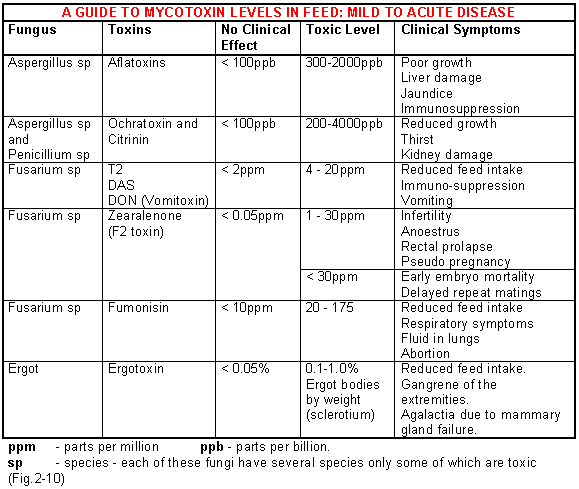



Fungi
Fungi (moulds and yeasts) are found in damp conditions such as in badly stored cereals. In the process of multiplication some species produce poisons (mycotoxins) which when eaten, are capable of causing a variety of clinical signs. The more important mycotoxic diseases are shown in Fig.2-10.
The following factors are important on the farm to prevent fungi multiplying and producing toxins.
- Do not store moist corn or cereals
- Do not allow grain to ferment
- Examine feed hoppers daily.
- Treat grain bins regularly.
- Check holding bins for leakages and bridged feed monthly.
- Do not allow feed to waste and ferment in feed troughs.
- Always examine your basic feed ingredients.
- Visually check the final feed prior to feeding
Several different species of fungi (called dermatophytes) infect the skin of the pig and cause ringworm. Ringworm is uncommon, although is a little more common in outdoor pigs than indoor pigs. It does no harm to pigs who seem unaware of it. It resolves spontaneously after a month or two and is unimportant. Occasionally fungi also cause abortion or mastitis in an individual pig but this is uncommon and no overall importance.








